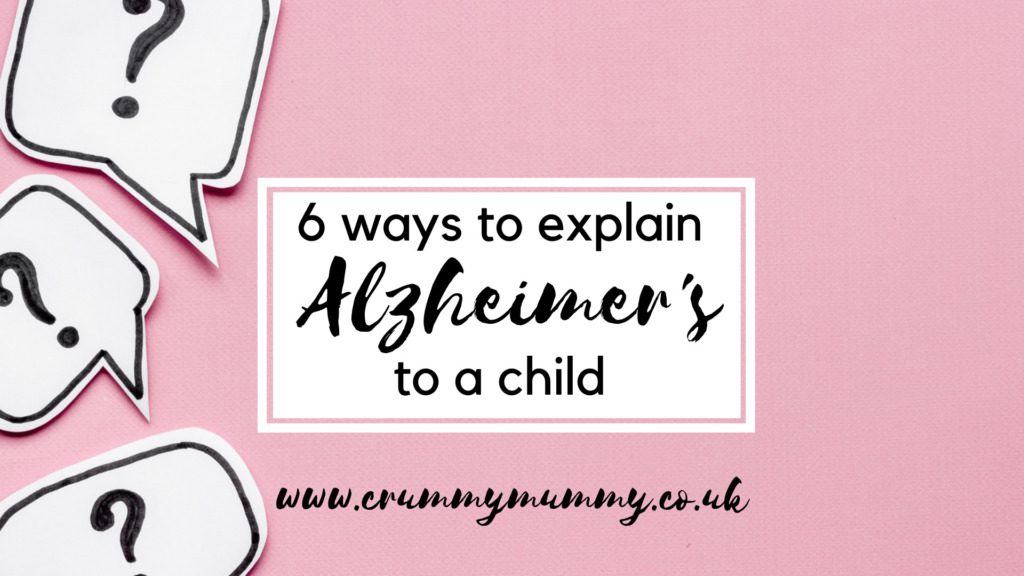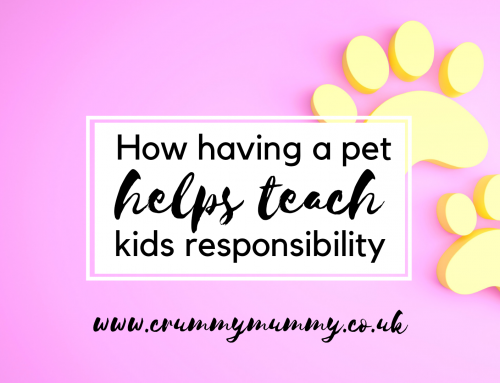Alzheimer’s is a devastating condition that can have a long-lasting impact on a person’s loved ones.
For that reason, trying to explain it to a child can be a very tricky proposition – something we’ll be discussing in this collaborative post.

As you’re probably aware, Alzheimer’s disease doesn’t just impact a single individual. The impacts of Alzheimer’s are far reaching and, for the loved ones of an Alzheimer’s patient, coming to terms with the reality of the situation can be incredibly challenging.
Alzheimer’s symptoms can be disconcerting, even for those who are well aware of what the condition means. So, for children who might not fully grasp what Alzheimer’s is, the prospect of someone they love, such as a grandparent, acting strangely or no longer remembering them is likely to be very upsetting.
This post may contain affiliate links. This means if you buy something after clicking on a link, I’ll earn a few pennies to help me keep creating posts like this, at no extra cost to you!
If one of your loved ones has been diagnosed with Alzheimer’s you’ll understandably already have a lot on your plate – whether that’s thinking about organising alternative accommodation or speaking to lasting power of attorney solicitors. But, if you have children, you should make sure to take the time to speak to them and help them understand Alzheimer’s as best as possible.
Here, we discuss some top tips to keep in mind when it comes to explaining and teaching Alzheimer’s to a child, so you can be sure they understand the situation as best they can.
6 ways to explain Alzheimer’s to a child
1. Keep things simple & honest
Truth be told, there is a lot we don’t know about Alzheimer’s, which can make it understandably difficult to explain when a child may have no prior awareness of what it is. For that reason, you’ll be best served keeping any discussions about Alzheimer’s simple and honest.

The best place to start would be to provide a simple explanation about Alzheimer’s that lays out the basic fundamentals. This could be that the disease:
- Affects the brain
- Leads to several symptoms, like memory loss, disorientation, mood swings and changes in behaviour
- It will get worse over time
- There isn’t currently a cure, but certain medication and treatments can prove helpful
Of course, it’s important to keep this sort of discussion age appropriate, as you don’t want to load too much information on a child all at once – especially a young child.
2. Be ready & willing to answer as many questions as they like
Where your children don’t fully understand something, or are being introduced to something for the very first time, they’re bound to have plenty of questions. That’s a good thing!
It’s important that you express the fact that they’re welcome to ask any questions they like, as this will ultimately help them to get to grips with the situation, at least in their own way.
Not only this, but you should also encourage children to be open about their feelings and concerns around the issue, especially as this will give you a clearer understanding as to how they feel and what you can do to support them.

3. Teach Alzheimer’s care techniques
Interacting with someone who has Alzheimer’s, particularly during the later stages, is a tall order for anyone, let alone children with limited comprehension. So, when you talk about Alzheimer’s with them, it’s a good idea to incorporate certain techniques that they can use when they’re speaking to them.
So, this will include validating a point rather than arguing with them if they raise something that’s incorrect or confusing, or learning how to change the subject where the patient becomes disorientated.

4. Pre-empt that there may be difficulties
Mood swings and uncharacteristic behaviour can often catch us off guard and have an emotional impact on everyone. Children have a tendency to internalise negative words and actions, which means that, if someone with Alzheimer’s reacts badly to them, or accuses them of something bad, they may feel as though they have done something wrong.
You should be mindful to help children understand that they’re not at fault and that there is nothing they should feel guilty or bad about. The disease is what’s causing the difficulties – not them, or the person who has Alzheimer’s.
5. Keep up an ongoing discussion
It’s important not to simply have a single discussion about the Alzheimer’s and then move on. Instead, make sure to keep up an ongoing discussion so that your child has a better understanding of the situation.
It doesn’t have to be a detailed conversation each time. You could simply ask how they feel every now and then and see whether they’ve got any questions they’d like to ask. This could be especially useful if you know that you’re going to be seeing the person with Alzheimer’s soon, or you’re aware their condition has worsened recently.

6. Speak to a support group for further help
While supporting someone with Alzheimer’s and taking on the burden of teaching your children about the condition can be daunting, you’re not alone. There are countless support groups available who are there to support people just like you who are dealing with the effects of Alzheimer’s and can provide useful information for both you and your children.
The Alzheimer’s Society is one such charity, who you can get in touch with if you feel like you’re struggling to cope with the situation, or you aren’t sure how best to speak to your children.

How else can you speak to a child about Alzheimer’s?
In this post, we’ve discussed some tips to consider when it comes to talking to your children about the difficult topic of Alzheimer’s.
Alzheimer’s is a cruel disease that can leave a strain on both you and your family, but by being open and honest with your children, and by leaning on those around you for support, the situation can be made that much easier.
Have you got any other tips for teaching children about Alzheimer’s? If so, please leave a comment below!
This is a collaborative post.

























Leave A Comment